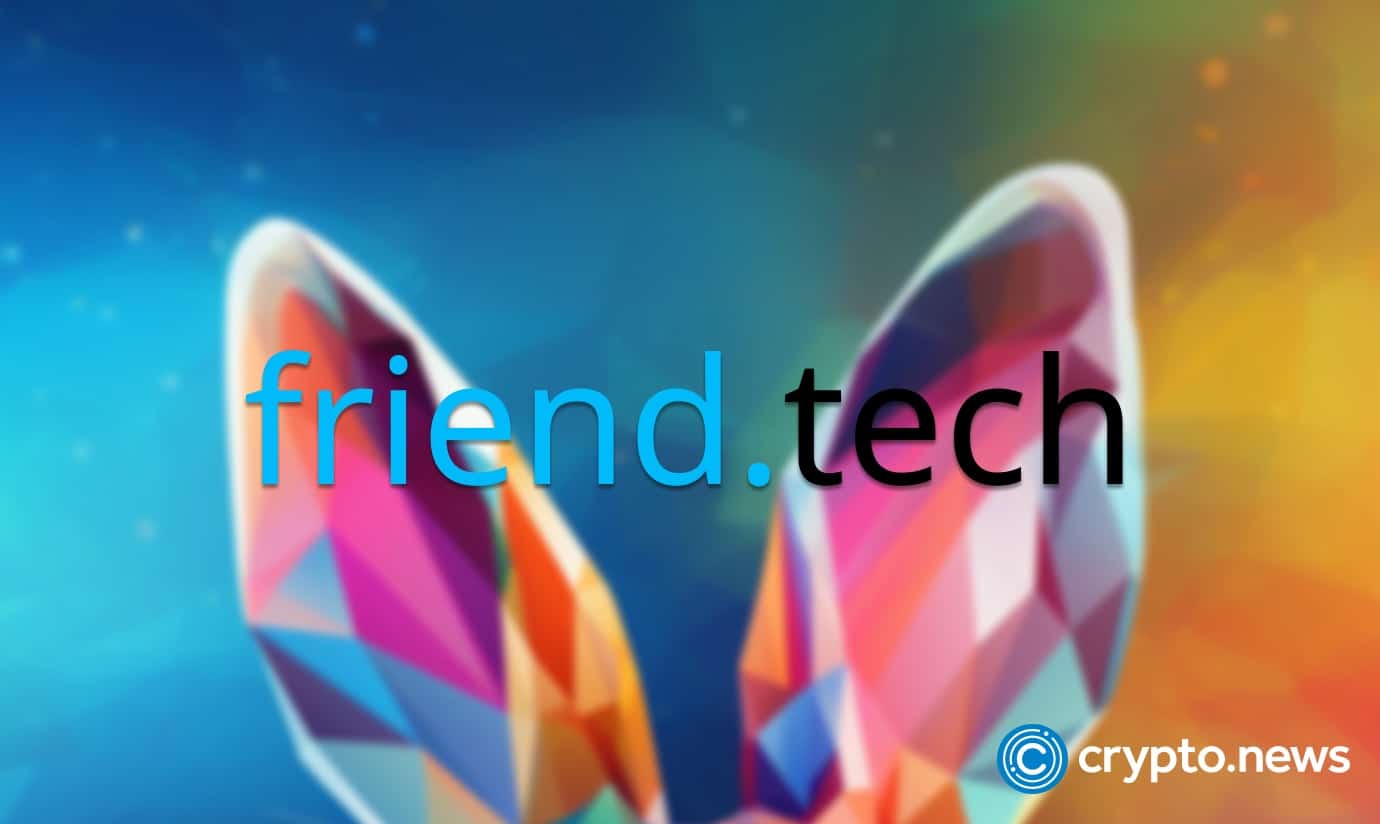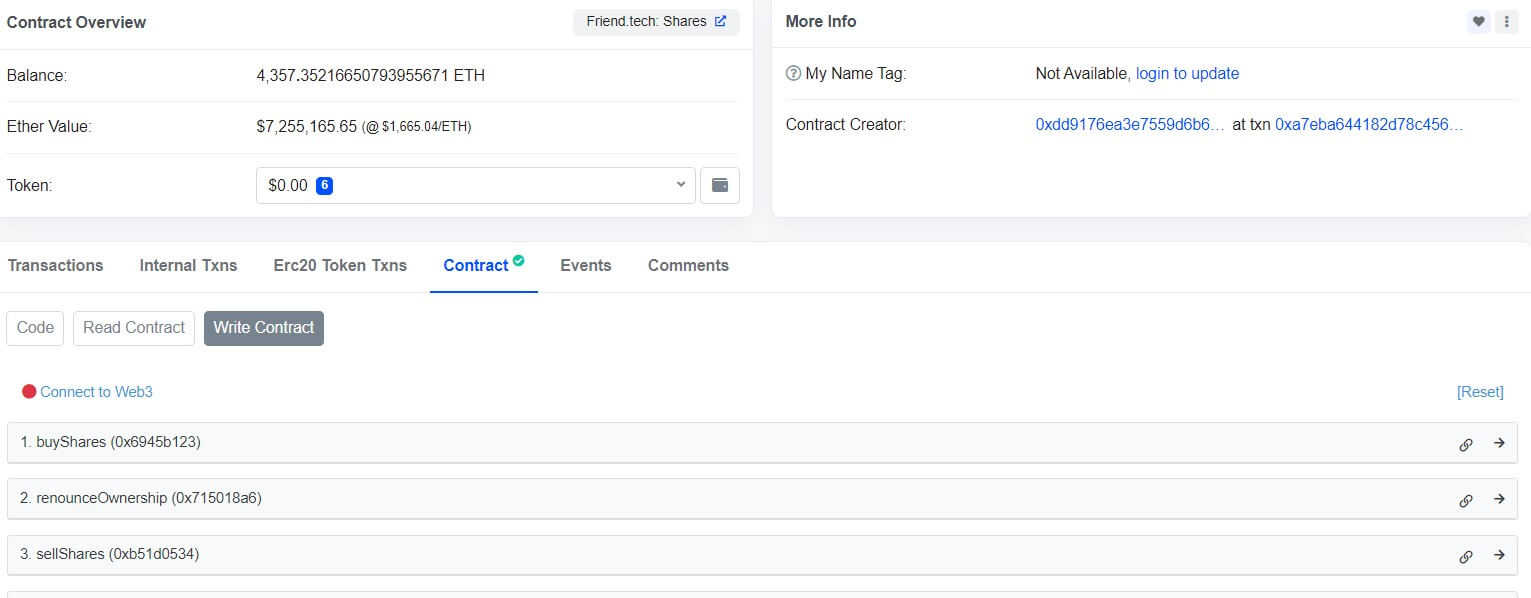2024-9-9 15:41 |
Friend.tech has made the choice to give up control of its smart contracts and transfer ownership to Ethereum’s null address. This has had a noticeable impact on the platform’s ecosystem and especially the value of the FRIEND token. The decision has sparked some immediate market reactions. Still, it is just the surface of some deeper problems the platform has run into.
Stagnant Growth and Declining EngagementPrior to recent events, Friend.tech had already been dealing with a stagnation in user growth and a drop in engagement. Once regarded as a decentralized social media platform with a lot of promise, it had a tough time keeping the forward momentum it had gained during its initial launch.
As the active-user numbers levelled off, many in the Friend.tech community began to wonder whether their platform was a long-term sustainable venture. They were hardly cheered by the latest decision made by the Friend.tech team, which was to give up control over the smart contracts that allow Friend.tech to function. That step hardly seems to bode well for the future of Friend.tech.
Smart Contract Lock and Its Immediate EffectsFriend.tech has effectively secured its system in its current form by transferring its smart contracts to Ethereum’s null address, a commonly used burn address. Therefore, the platform cannot make any future changes to its fees and functionality.
In a Tweet, Friend.tech explained that the rationale for their decision was to “prevent any changes to their fees or functionality in the future.” Many observers interpret that premise as a signal that the platform is essentially frozen and unable to meaningfully evolve or improve.
Admin and ownership parameters have been set to 0x000…000 to prevent any changes to their fees or functionality in the future.
This change does not affect the separate web client operated at https://t.co/YOHabcBL3H which will continue to function as is. No fees from either…
Some people who watch Friend.tech have interpreted its current situation as one of operating in shutdown mode. They point to the current state of the development team not being able to upgrade the platform, implement new ideas, or address emerging trends.
Without these basic functions, some wonder how Friend.tech can continue to exist as a competitor in a landscape of options that can rapidly change, both in Web3 and in social media.
Furthermore, after the announcement, the FRIEND token took a nosedive, plummeting 30% and hitting a new bottom of $0.059. However, it has since risen to $0.085 at the time of writing. Peak market cap: $233.6 million. Current market cap: under $8.4 million. There’s some loss of confidence going on, with a lot of investors seeing the platform’s future as severely compromised.
Friend. tech’s Role in SocialFiEmerging from the new SocialFi sector, Friend.tech combines elements of decentralized finance with social networking. Built on Coinbase’s Base blockchain, Friend.tech allows its users to buy and sell “shares” of other users. These shares function as a rudimentary form of social token. They grant you access to private chats with the user you’re tokenizing.
Now, Friend. tech’s choice to give up the control of its smart contracts has rendered the platform lifeless. As one of the players in the SocialFi sector, it has to be asked what kind of ripples this might send through the landscape of a sector that is SocialFi’s very emergent nature. The inability to adjust or innovate puts Friend.tech at a pretty distinct disadvantage in a sector where that sort of thing isn’t really optional if you’re hoping for a pathway route to user engagement and success.
Overall, Friend. tech’s smart contracts are now securely locked, so its future is pretty clear—just not pretty. Friend. tech’s halt in growth and bad decision-making has compounded the problems that come with dwindling investor confidence.
Editor’s note: Written with the assistance of AI – Edited and fact-checked by Jason Newey.
The post Friend.tech Freezes Its Future: Why Investors Are Jumping Ship appeared first on NFT News Today.
origin »Bitcoin price in Telegram @btc_price_every_hour
Jingtum Tech (SWTC) на Currencies.ru
|
|








